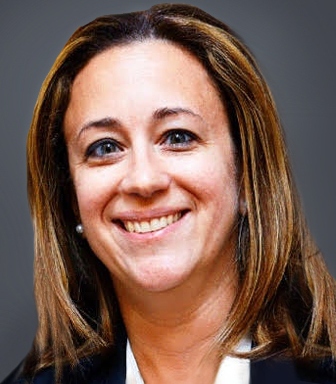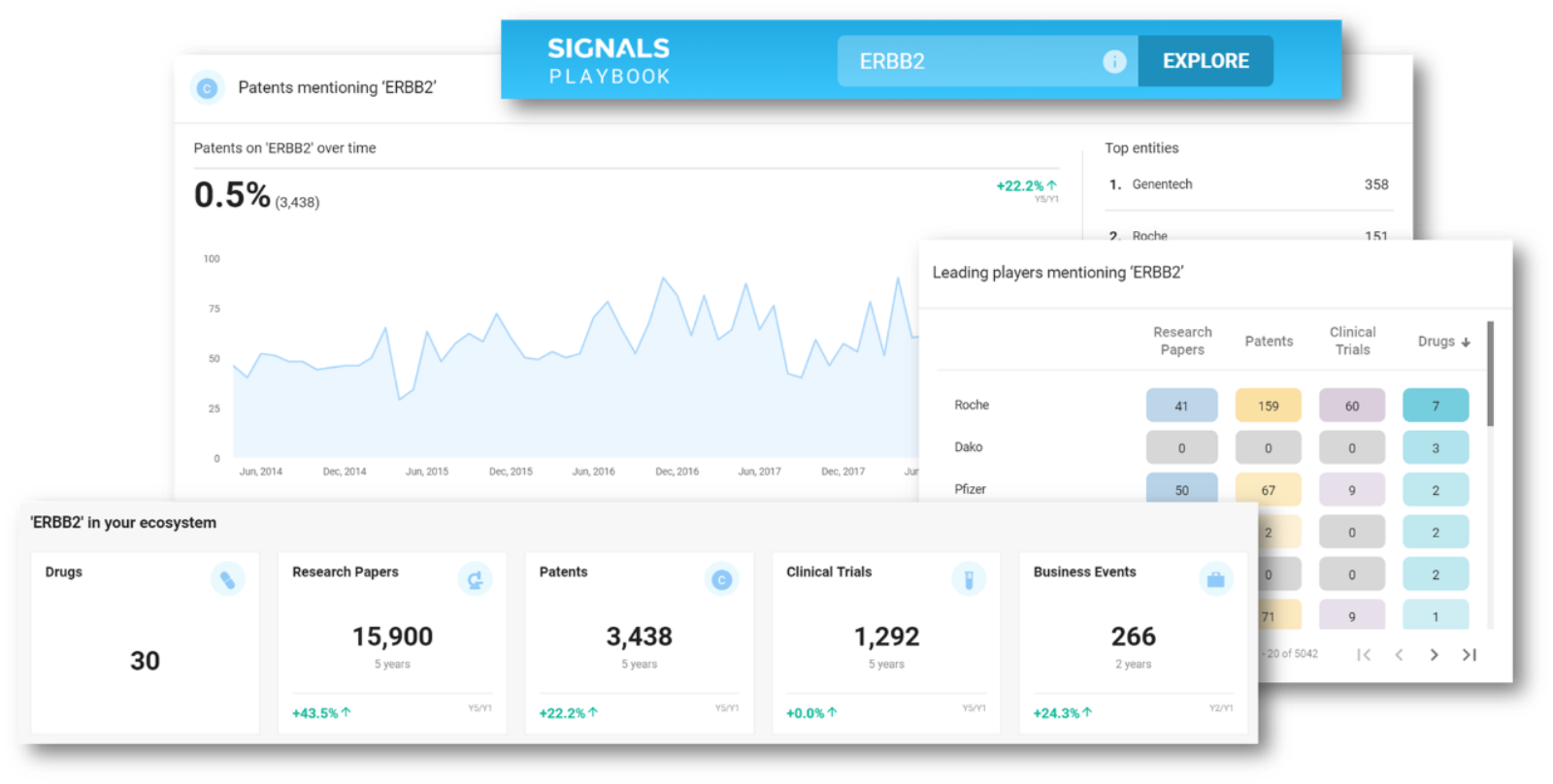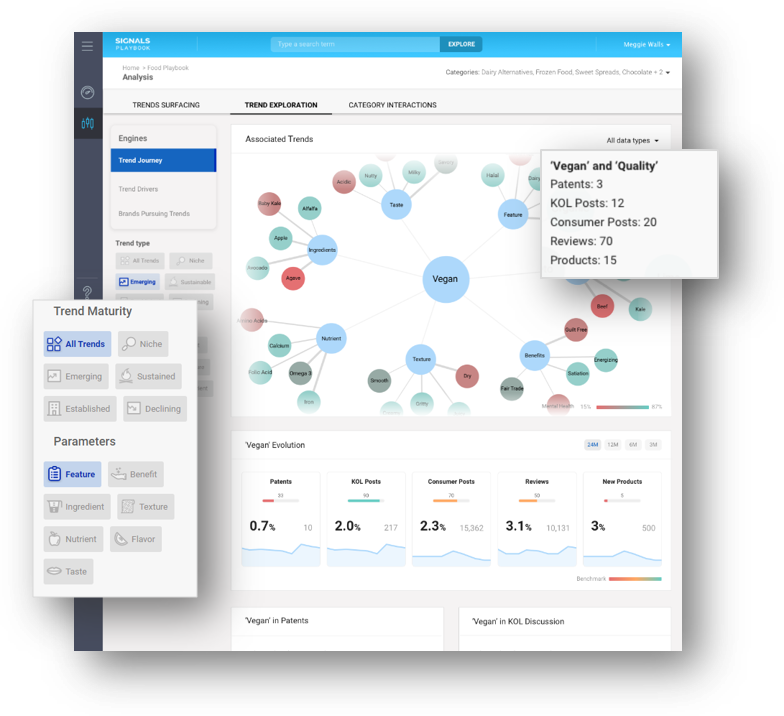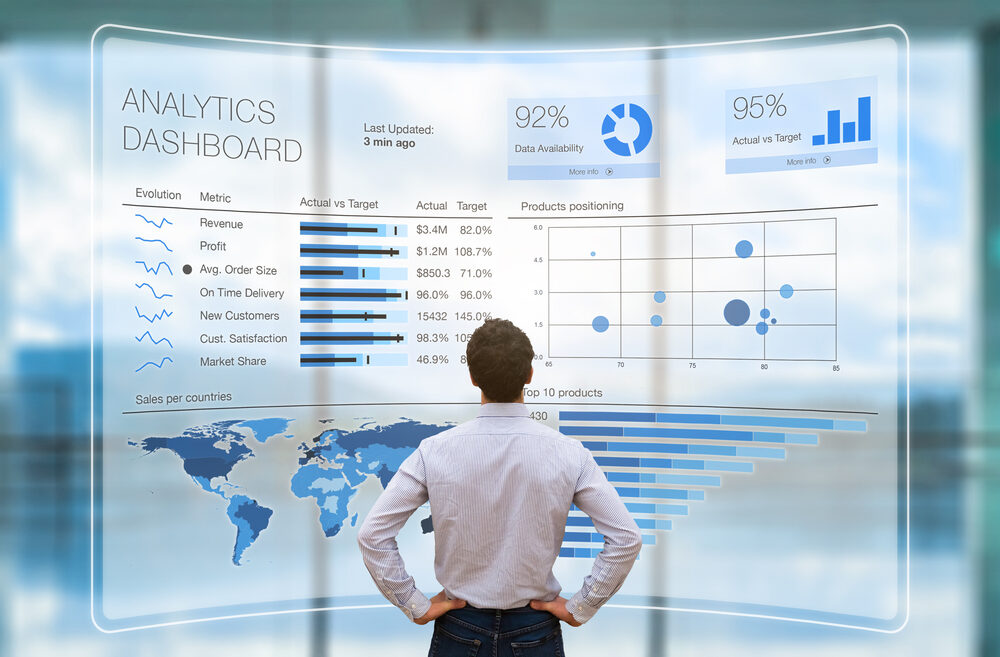Focus groups are so 1995. Why go to the trouble of gathering presumably representative individuals to ask them questions in person when artificial intelligence and big data can do it better, faster and cheaper?
That’s the premise of Tel Aviv and New York-based Signals Analytics, which monitors some 13,000 data feeds – everything from publicly available social-media sites to subscription services such as Nielsen and Comscore – to predict future trends and directions.
Signals’ customers include big-name consumer brands such as Mars, Nestlé and Pepsico along with leading pharmaceutical companies such as Novartis and Roche.
Helping pharma companies with their drug development roadmaps has always been an important part of Signals’ playbook. It has become even more critical as the search for a vaccine and treatment for COVID-19 has dominated the world’s attention.

To understand what sets Signals apart, Chief Marketing Officer Frances Zelazny suggests we review how a pharma manufacturer decides whether to develop a new drug or vaccine. It can take 10 to 15 years to bring a product to market and cost billions of dollars. Even in the best-case scenario, a COVID-19 vaccine is at least a year away.
“In the past, a drug company could look at patent filings, drug trial developments and conference agendas to see what people are talking about,” Zelazny explains. “If you see that this or that company is making progress in a certain area, you might not go there because it’s too competitive.”
Pharma companies also monitor the latest government grants to help in their decision-making. Compiling all this information by hand is timeconsuming, expensive and risky – it’s too easy to miss a key point.
Signals takes the human element out of the equation. Its technology assembles all the data and displays it on a dashboard customized by the client or on an industry-specific visual “playbook.”
Signals has playbooks for the food and beverage, pharmaceuticals and personal care and beauty industries.

Signals has made its latest product, the COVID-19 Playbook, free of charge for researchers seeking market intelligence and trends surrounding potential treatments or a vaccine for the novel coronavirus.
Like a bird whispering in your ear
How often do clients check their Signals dashboard? A chief data officer will probably access that information all day long. Someone else might only need to look every week or month.
For COVID-19 researchers, frequent checking is likely to be the watchword. “A deluge of data is being generated every day and it is impossible for researchers to keep up,” says Signals Analytics CEO Gil Sadeh. “In the middle of this pandemic, every minute counts.”
Either way, automating the intelligence gathering and prediction process offers the advantage of being continuous.

“The real indicators are what’s happening all around us: real-time pricing trends, what key influencers are talking about on social media, what ingredients are being added to products,” Zelazny says.
“If you’re a chief marketing officer or a brand manager, having access to all this data all the time is like a bird whispering in your ear on what to pay attention to,” he emphasizes.
“If you’re a C-level brand manager and you’re going to your board to ask for a $100,000 investment, you need the data – the point-of-sale and demographic data as well as the social listening – to back you up.”
With 13,000 external data sources, getting a client up and running is not as simple as clicking a few buttons.
“You have to choose your data sources, set up taxonomies, choose visualization and output options,” Zelazny says. “If you’re in the field of rheumatology, for example, feeds in oncology are not going to be as relevant for you.”
Finding the signal in all the noise
The name Signals comes from the idea of sifting the “signal” (the important information) from the “noise.”

It’s a concept that got its start in the army. The company’s cofounders, Sadeh and Kobi Gershoni, were intelligence operatives in the IDF. They realized that to make a decision in the field, you couldn’t look at just one data source – you had to take multiple signals into account.
Sadeh and Gershoni gained expertise in combining open source intelligence (OSINT), signal intelligence (SIGINT) and human intelligence (HUMINT) to enable their covert operations. When they left the military, they wanted to do the same for business.
Signals isn’t limited by geography – anyone can use the product – although language is somewhat of a gating factor. The platform currently works primarily with data sources in English, although Zelazny says they’re adding sources in other languages – Chinese in particular – every day.

Signals Analytics was founded in 2009 and employs 150 in its two main offices.
Zelazny stresses that Signals is not a consulting company that writes reports on trends for its clients. Rather, it’s a platform that helps clients make better decisions on their own.
CBD, flexitarianism and colic
That said, Signals staff has white papers and articles sharing some of the conclusions its AI technology has reached from mining thousands of sources.
- CBD, the non-psychoactive component of cannabis is being added to everything from shampoo to chocolate-chip cookies. Consumer demand for CBD in food and drink stands out above the rest, the company reports. “CBD ranks third on the list of most-discussed ingredients in this sector, surpassed only by aspartame and honey in consumer discussions.”
- Growing interest in a “flexitarian” (semi-vegan) diet is influenced more by health drivers than by the environmental effects of meat consumption.
- In the pharma space, there has been a 125% growth in the number of research papers looking at the BRCA1 gene (which is correlated with an increased risk for breast cancer) in the past year, and a 350% growth in papers on mono-specific antibodies for fallopian tube cancer.
- More than 3,300 Phase II through Phase IV cell and gene therapy trials are currently underway. Oncology, hemophilia, Huntington’s disease, sickle-cell disease and ALS are among the top conditions targeted in clinical trials.
- Parents are talking online about gas and colic reduction for their babies – a lot. Some 11.7% of online consumer discussions in forums about infant nutrition products are concerned with the topic, yet only 4% of products in the market address gas and colic reduction, the company reports.
- Single-origin coffee –sourced from a single farm or region – accounts for 15% of all online conversations about the popular caffeinated drink, yet only 5% of coffee products on the market are single-origin. Can niche coffeemakers capitalize on this imbalance?
- As consumers move toward all-natural diets, they’ll demand the same for their pets.
As for the novel coronavirus, click here for Signals Analytics’ latest insights on vaccine development and drug discoveries.
For more information about Signal Analytics, click here.














